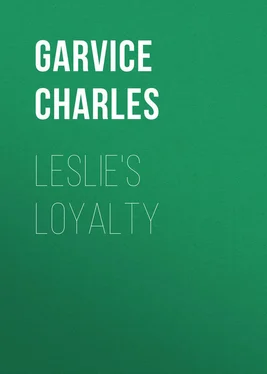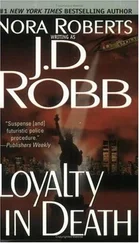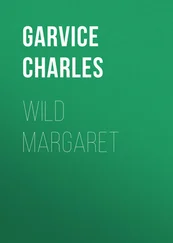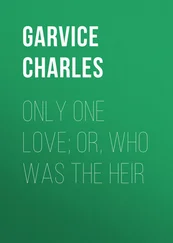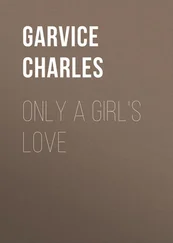Charles Garvice - Leslie's Loyalty
Здесь есть возможность читать онлайн «Charles Garvice - Leslie's Loyalty» — ознакомительный отрывок электронной книги совершенно бесплатно, а после прочтения отрывка купить полную версию. В некоторых случаях можно слушать аудио, скачать через торрент в формате fb2 и присутствует краткое содержание. Издательство: Иностранный паблик, Жанр: foreign_antique, foreign_prose, на английском языке. Описание произведения, (предисловие) а так же отзывы посетителей доступны на портале библиотеки ЛибКат.
- Название:Leslie's Loyalty
- Автор:
- Издательство:Иностранный паблик
- Жанр:
- Год:неизвестен
- ISBN:нет данных
- Рейтинг книги:4 / 5. Голосов: 1
-
Избранное:Добавить в избранное
- Отзывы:
-
Ваша оценка:
- 80
- 1
- 2
- 3
- 4
- 5
Leslie's Loyalty: краткое содержание, описание и аннотация
Предлагаем к чтению аннотацию, описание, краткое содержание или предисловие (зависит от того, что написал сам автор книги «Leslie's Loyalty»). Если вы не нашли необходимую информацию о книге — напишите в комментариях, мы постараемся отыскать её.
Leslie's Loyalty — читать онлайн ознакомительный отрывок
Ниже представлен текст книги, разбитый по страницам. Система сохранения места последней прочитанной страницы, позволяет с удобством читать онлайн бесплатно книгу «Leslie's Loyalty», без необходимости каждый раз заново искать на чём Вы остановились. Поставьте закладку, и сможете в любой момент перейти на страницу, на которой закончили чтение.
Интервал:
Закладка:
"He has already proved himself a very kind friend," says Leslie, gently.
He flushes.
"You mean in buying the picture? Yes, yes. But you know how I dislike strangers, and – and – excursions of this kind. And if you don't want to go very much I'd rather not. Besides, I don't particularly care about making the acquaintance of a duke; I am an artist, a professional man, and I do not believe in associating with persons so far above me in rank. No, we had better decline. I dare say my head will be all right presently, and I shall be able to work, and you can come with me and mix the colors, and so on."
"Very well, dear," she says, struggling to suppress a sigh. "You shall do just as you like. I should have liked to have gone, and the drive would have done you good."
"I am quite well, and I hate long drives," he responds, emphatically, "especially in the company of dukes. What is he doing down here?" he asks, testily. "Did you say you went for a sail with him last evening?"
"Yes," says Leslie, with a sigh that will not be suppressed as she thinks of the moonlit sea, and the pleasant companion who unfortunately has turned out to be a duke. "Yes, and he was very kind and nice, and not a bit like so grand a personage," she adds, with a smile. "He looked exactly like a – fisherman last night, and talked like a young man fresh from school or college. He is not my idea of a duke at all; I fancy I must have thought that dukes talked in blank verse, and habitually wore their coronets and robes."
He waves the subject aside with nervous impatience.
"I don't know anything about them, and I don't want to," he says, getting up and fidgeting round the picture. "I've got this sky too deep, I think, and – ." He continues in an inaudible mutter.
Leslie knows that it is useless to say any more, and is silent, and when her breakfast things are cleared away she gets out her plain little desk to write a refusal.
But at the outset she finds herself in a difficulty. "Mr. and Miss Lisle regret," etc., sounds too formal after that eminently informal sail last night, and yet she does not know how to begin her note in the first person. Should she address him as "Dear duke," or "Your grace," or "My lord," or how?
"Did you ever write to a duke, papa?" she asks at last, playing a tattoo with the pen-holder upon her white, even teeth.
"Never, thank Heaven," he says, absently.
"Then you cannot help me?" she says, with a sigh, and ultimately she puts the note in the formal method.
"Miss Lisle presents her compliments to the Duke of Rothbury, and regrets that she and Mr. Lisle are unable to accept his kind invitation for to-day."
"It looks dreadfully stilted and ungrateful," she says to herself; "but it will certainly remove any risk of further acquaintance, and papa will not be worried into knowing such a great personage."
She sends the note over by Mrs. Merrick's small servant, and in five minutes that diminutive maid comes back open-eyed and mouthed with awe and importance.
"If you please, miss, I gave the note to the gentleman what wheels the other gentleman's chair, and he says the duke has gone to Northcliffe, but he'll give him the note when he comes back."
Leslie laughs rather ruefully.
"We need not have worried about the drive to St. Martin, papa," she says. "The duke has forgotten all about it."
But the artist is painting away vigorously, and apparently does not hear her, and with a feeling of disappointment which it is useless to struggle against, she gets out some work and seats herself at the open window.
She has proved more reliable than the usual run of weather prophets, and the day is all she prognosticated. The street is bathed in sunlight, the sea is sparkling as if it had been sprinkled with amethysts; there is a soft breeze laden with the perfume of the early summer flowers in the cottage gardens; a thrush perched on a tree close by is singing with all its might and main. It would have been very pleasant, that proposed drive to St. Martin.
The morning passes slowly onward; the artist, too absorbed by his work to notice the sunlight, or the sea, or the birds, is still painting when, with the striking of the midday hour there mingles the click clack of horses' hoofs on the stony street, and Leslie looking up with a start – for she has been thinking of all she has lost – sees a wagonette and a pair of stylish bays draw up to the door.
On the box is Yorke, no longer in the fisherman's jersey, but clad in Harris tweed, his handsome face bright and cheerful, his whole "get up" and manner suggesting pleasure and a holiday.
After quieting the spirited horses with words and a touch of the whip, he looks down from his high perch, and seeing the startled eyes looking up at him, raises his hat and smiles.
"Are you ready?" he inquires, just as he inquired last night.
Leslie shakes her head, and tries to smile, but the effort is a failure, and putting down her work, she comes to the open door.
"Oh, I am so sorry," she says. "Did you not get my note?"
"What note?" he asks. "Stand still, will you! No, I haven't seen any note. What was it about?"
"We cannot come," she says, with a look at the horses which is more wistful even than she knows.
His face clouds instantly.
"Not come! Oh, I say! Has anything happened? Why not? It's the loveliest day – ."
"Yes, isn't it?" she assents, shading her eyes and looking round. "But my father is not well. He has a headache, and – ."
"Why, that's all the more reason he should go!" he responds, promptly. "The drive would set him straight!" he urges, remonstratively. "Look here, I'll go and speak to him."
"And while you do the horses will run away straight into the sea," she says, with a smile.
"No, they won't. If you don't mind just standing by this one, the near one. If he moves growl at him like this, 'Stand still!' He'll stop directly."
"Well, I'll try," she says, laughing in spite of herself; and he goes straight into the room.
Lisle looks up at him with impatient surprise and half-dazed; it is as if the young fellow had brought the brilliant sunlight in with him.
"Mr. Lisle, you don't mean to say you aren't coming?" says Yorke.
"Coming? Where?" He has forgotten all about the invitation.
"Why, to St. somewhere or other," says Yorke. "It never entered my head that you'd refuse. Why should you? If you don't care about it yourself, you ought to go for Miss Leslie's sake. She wants a change, an outing; any one can see that. Perhaps you haven't noticed how pale she looks this morning."
Oh, Yorke!
"Leslie is all right," says Lisle, irritably; "she is always strong and well. I'm sorry we cannot accompany you, but I beg your pardon, you are standing in my light. Thank you."
Yorke looks from the pale, livid face of the dreamer to the impossible picture on the easel, and bites his lips. He is sorely tempted to catch up the artist, easel and all, and bundle them into the carriage. Then a far better and more feasible idea strikes him.
"I'm sorry you can't go, Mr. Lisle," he says as indifferently as he can, "because I thought of asking you to make a rough sketch of the castle for me. Want it for my own room, you know. I'm awfully mad on water colors."
Mr. Lisle looks up with awakened interest.
"There is a good sketch to be got out of the west end, the turret," he murmurs, absently.
"That's just what I wanted," Yorke strikes in promptly. "That's the bit I was going to ask you to paint. Come along, sir; allow me," and he catches up the portable easel and paint box and carries them out before Lisle can realize what is being done.
"All right!" Yorke cries to the astonished Leslie: "he is coming. Run in and put your things on, and don't give him time to think."
"But," falters Leslie, a smile beginning to break on the lovely face.
Читать дальшеИнтервал:
Закладка:
Похожие книги на «Leslie's Loyalty»
Представляем Вашему вниманию похожие книги на «Leslie's Loyalty» списком для выбора. Мы отобрали схожую по названию и смыслу литературу в надежде предоставить читателям больше вариантов отыскать новые, интересные, ещё непрочитанные произведения.
Обсуждение, отзывы о книге «Leslie's Loyalty» и просто собственные мнения читателей. Оставьте ваши комментарии, напишите, что Вы думаете о произведении, его смысле или главных героях. Укажите что конкретно понравилось, а что нет, и почему Вы так считаете.
